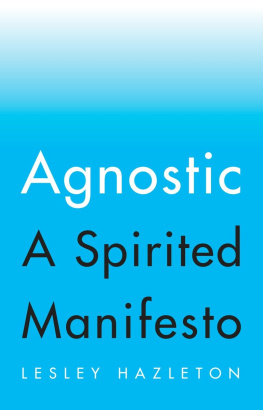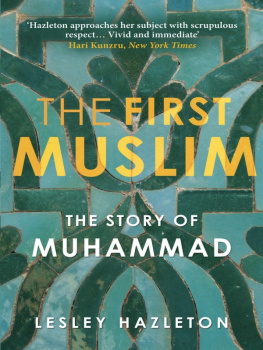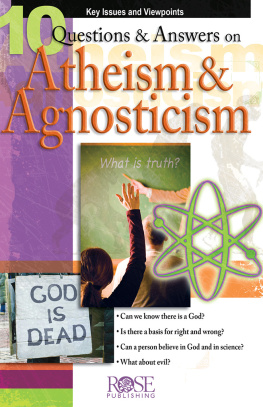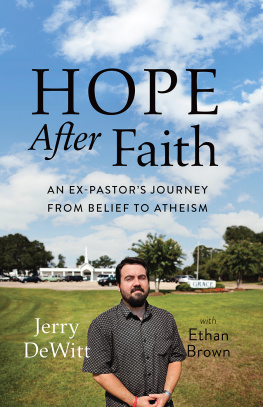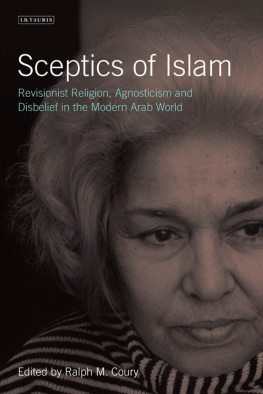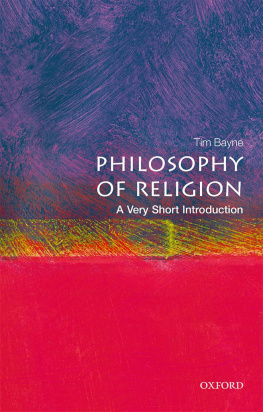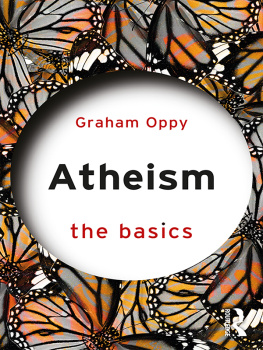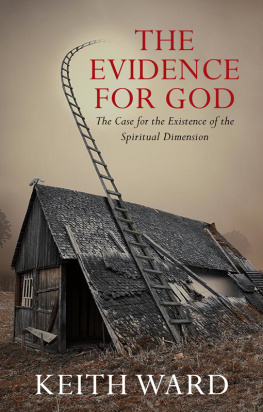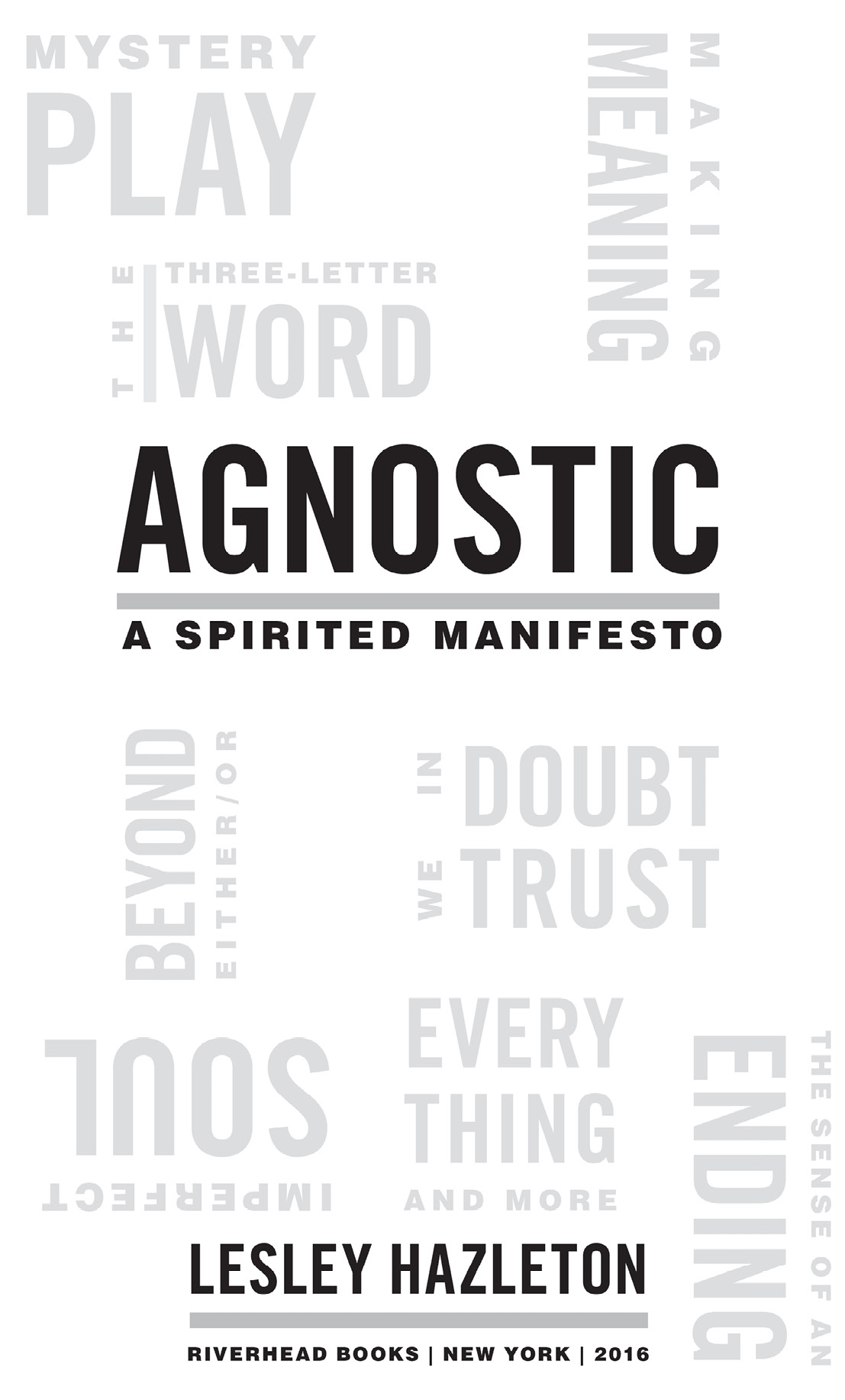Penguin supports copyright. Copyright fuels creativity, encourages diverse voices, promotes free speech, and creates a vibrant culture. Thank you for buying an authorized edition of this book and for complying with copyright laws by not reproducing, scanning, or distributing any part of it in any form without permission. You are supporting writers and allowing Penguin to continue to publish books for every reader.
ONE
BEYOND
EITHER/OR
There are some four hundred houseboats in Seattle. Many, like mine, are little more than shacks on rafts, but this may be the only one with a mezuzah at its entrance. If I were religious, the small cylindrical amulet would hold a miniature scroll inscribed with the Shema, the Jewish equivalent of the Lords Prayer or the Islamic Shahada. But mine doesnt, partly because the scroll kept falling out when I put the mezuzah up on the doorpost, and partly because I dont believe a word of the prayer anyway. Im not sure what happened to it. I may have thrown it out in a tough-minded moment, or it may be squirreled away at the bottom of a drawer somewhere. No matter. Most of the time I dont even notice the mezuzah, and neither does anyone else. But I know its there, and that does matter.
Yet why should it? I am firmly agnostic, and havent been to a synagogue service in years. Decades, in fact. So is the mezuzah an empty sentimental gesture on my part, or does the word hypocrisy apply? Could I be in denial: a closet theist, or a more deeply closeted atheist? Or am I just a timid fence-sitter, a spineless creature trying to have it both ways, afraid to commit herself one way or the other?
And theres the problemright there in that phrase one way or the other. It sees the world in binary terms: yes or no, this side or that. It insists that I can be either agnostic or Jewish but not both, even though both are integral parts of this multi-faceted life that is mine, as integral as being a writer, a psychologist, a feminist, all the many aspects of this particular person I am. All are part of the way I experience the world, and myself in it. Take any one of these aspects away, and Id be someone else.
To be agnostic is to love this kind of paradox. Not to skirt it, nor merely to tolerate it, but to actively revel in it. The agnostic stance defies artificial straight lines such as that drawn between belief and unbelief, and shakes off the insistence that it come down on one side or the other. It is free-spirited, thoughtful, and independent-mindednot at all the wishy-washy I-dont-knowness that atheists often accuse it of being. In fact the mocking tone of such accusations reveals the limitations of dogmatic atheism. Theres a bullying aspect to it, a kind of schoolyard taunting of agnostics as lacking the courage of their convictionsa phrase that raises the question of what exactly conviction has to do with courage. Its easy to forget that the inability to muster the honesty of the three words I dont know only leads to a radical dishonesty. The least we have come to expect is that someone be able to bullshit their way out of not knowing something, which is why the first thing taught in media training (a term that always makes me think of obedience training for dogs) is how to evade a difficult question and maintain the tattered illusion of mastery.
I stand tall in my agnosticism, because the essence of it is not merely not-knowing, but something far more challenging and infinitely more intriguing: the magnificent oxymoron inherent in the concept of unknowability. This is the acknowledgment that not everything may be knowable, and that not all questions have definitive answerscertainly not ones as crudely put as the existence or non-existence of God. At its best, however, agnosticism goes further: it takes a spirited delight in not knowing. And this delight is no boorish disdain for knowledge and intellect. Rather, its a recognition that we need room for mystery, for the imagination, for things sensed but not proven, intuited but not definedroom in which to explore and entertain possibilities instead of heading straight for a safe seat at one end or the other of a falsely created spectrum.
Whats been missing is a strong, sophisticated agnosticism that does not simply avoid thinking about the issues, nor sit back with a helpless shrug, but actively explores the paradoxes and possibilities inherent in the vast and varied universe of faith-belief-meaning-mystery-existence. Thats my purpose here. I want to explore unanswerable questions with an open mind instead of approaching them with dismissive derision or with the solemn piety of timid steps and bowed headto get beyond old, worn-out categories and establish an agnostic stance of intellectual and emotional integrity, fully engaged with this strange yet absorbing business of existence in the world.
I HAVE BEEN agnostic for almost as long as I can remember. The only Jew in an English convent school, I grew up with competing claims on what was presumably my soul, reciting one grace-before-meals in the convent and another at home, and wishing I had to do neither. The school chapel was redolent with the smell of stale incense, the local Orthodox synagogue with the equally stale scent of Chanel No. 5 on the fox stole of my mothers neighbor in the womens balcony, where Id pass the time by trying to outstare its beady eye. Home offered the comfort of chopped liver, school the temptation of porkand the disappointment when, half-convinced that the infamous bolt from the blue would strike, I finally dared take a bite, only to find that it tasted like boiled chicken. How could something forbidden be so bland?
Two major religions seemed to be battling for possession of me, making me wonder how it could make any difference what one stoop-shouldered adolescent believed. Yet while logic seemed to dictate that I would walk away from all things remotely religious as soon as I emerged from childhood, that didnt happen. Instead, I compounded my involvement by going to Jerusalem for two weeks and staying for thirteen years. I stayed at first because I was twenty and in love with a classically wrong guy, and then because by the time Id come to my senses and fallen out of love, Id already told my university in England to give my research grant to someone else. This was, by any rational measure, a terrible decision, and I have never regretted it.
It was still possible then for a political innocent to romanticize Jerusalem. Mysticism seemed to shimmer in the air. Jewish and Christian and Muslim legends piled on top of one another, laying claim to the same limestone hills and making it easy to imagine that this provincial city had a cosmopolitan soul. I treasured the famous medieval map showing a three-petaled universe with Jerusalem at its hub, and honed my skills in the Center of the World pool hall hidden deep in the alleys of the Old City, not yet aware that thinking of yourself as the center of the world might itself be a sure sign of provincialism. But where the sacred and the profane once seemed to rub shoulders with entrancing ease, they became increasingly indistinguishable. Jerusalem brought me into the vast and volatile arena in which politics and religion intersect, and as I explored that arena as both a psychologist and a journalist, what Id thought of as a mysteriously God-haunted city became a city with too much God and not enough humanity.

